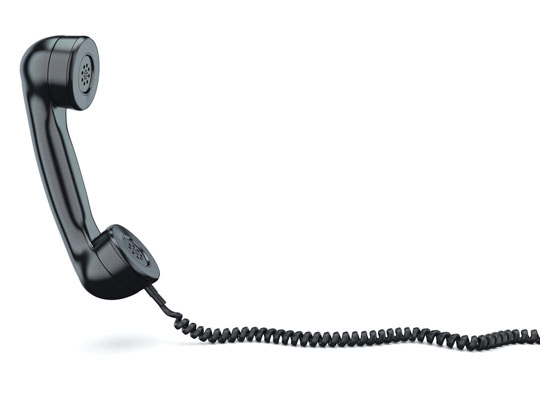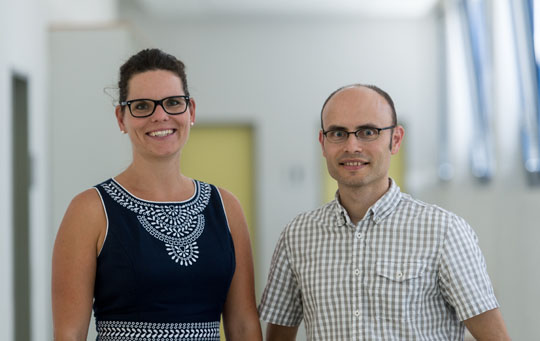Oh no, he's calling again!
Freiburg, Sep 07, 2017
Having work contact you at all hours, having to adapt ever faster to changing demands; it's no surprise that mental illness is now one of the commonest causes of absence from work. But there are things that can be done about it. Anita Rüffer spoke to the Freiburg business psychologists Dr. Nina Pauls and Dr. Christian Schlett. Together with colleagues from other universities, they have carried out two research projects to develop tools to promote mental resilience and working with companies have trialed new approaches for dealing with constant availability.
 Photo: apopium/Fotolia
Photo: apopium/Fotolia
Mr Schlett, do you leave your mobile telephone off when you are on holiday or at weekends?
Christian Schlett: My private mobile isn't even set up to receive work e-mails.
Why is it important to be unavailable to your employer in your free time?
Nina Pauls: We know from our research that it can otherwise become difficult to switch off and separate work from private life.
Schlett: If I were always on call and was wondering if someone was going to ring or an e-mail was coming, I would find it harder to relax in my free time. As a result I wouldn't rest as well and be able to recover from work. So I'd be neither here or there.
 Nina Pauls and Christian Schlett are trying out new approaches to dealing with constant availability.
Nina Pauls and Christian Schlett are trying out new approaches to dealing with constant availability.
Photo: Patrick Seeger
Some people maybe are afraid of losing out and in a kind of docile anticipation remain perpetually set to receive.
Pauls: An employer doesn't and shouldn't expect this. But depending on the corporate culture such feelings may be encouraged. One's own performance standards also play a part: because you want to do good work, you continue working at home if you don't manage it all during regular working hours. It's often a sign of overload.
But aren't there also advantages in freely arranging your time between work and private life?
Schlett: Only if I decide for myself. If I'm always being driven by my work, the result can be stress, burnout and physical problems such as sleeplessness
What practical solutions have you come up with?
Pauls: Working with selected companies, we developed rules for how employees can divide up work and leisure better. Before new projects are started, for instance, a company looks to see whether it has any capacity for them, so that no one is forced to take work home with them.
Schlett: Our studies have shown that two-thirds of employees are uncertain whether they have to respond to work inquiries in their free time, and in what time-frame. We worked on clarifying these expectations: if something is really urgent, a text message can be sent asking for them to read an important e-mail. And if someone has tried to reach an employee three times one can assume that it's really important and call back.
Can individual employees also arm themselves better mentally against over-demanding work conditions?
Pauls: Yes! in cooperation with the Freiburg software company Haufe-Lexware we have developed web-based training that reinforces mental resilience.
This 'resilience' isn't innate, then – you can practise it?
Schlett: There are basic tendencies, but there are aspects that can be trained effectively with regard to work.
Which?
Pauls: Anyone who is often distracted and absent-minded in their working life and is therefore blocked from dealing with really important things can benefit from mindfulness training. With guided exercises in focusing on our Internet platform, people learn to observe themselves when their mind starts to wander. Conscious perception enables a conscious decision: to stop wandering off the point and focus on the substance.
Schlett: Or take a customer adviser who is faced with an unpleasant conversation with a dissatisfied customer. Instead of losing heart, he could remind himself of his strengths and recall similar situations that he has dealt with successfully. This strengthens his self-belief. Then there is also posture: anyone who attends an interview with bowed shoulders has less chance than someone who approaches the opposite party in an open and upright way.
Keeping employees fit so that they are capable of greater workloads: can employers misuse this sometimes?
Pauls: Training isn't an isolated measure but part of operational health management. This also includes courses on healthy leadership.

